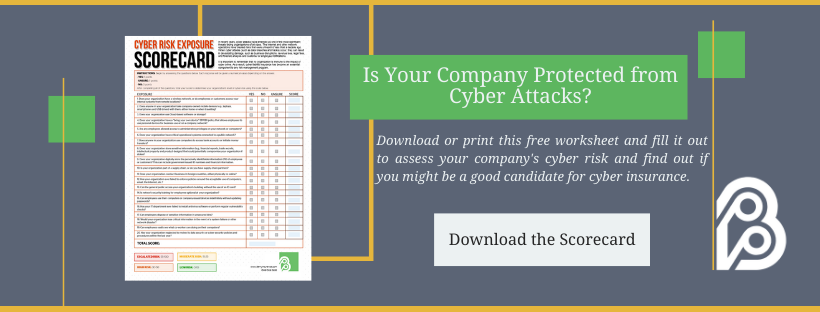First-Party vs. Third-Party Cyber Liability Insurance: What’s The Difference?
When running a business, it’s important to purchase the right insurance coverage to protect your employees, clients, and data. And with technology being such a large part of many businesses, whether it be online transactions or data storage, business owners need the best cyber insurance available.
Even though cyber liability insurance is a crucial coverage for many companies, business owners may be unsure about the different types and what they will need to purchase for their business.
At Berry Insurance, we’ve worked with numerous business owners to secure the right insurance coverage for their business - as well as answer all their questions regarding cyber liability coverage. In this article we’ll break down the difference between first-party and third-party cyber liability insurance and which you should consider for your business.
What is cyber liability insurance?
Firstly, let's review what cyber liability insurance offers business owners.
Cyber insurance covers the costs associated with a cyber attack or data breach to your business or organization. This includes both malicious attacks as well as freak accidents that affect your data and computer systems.
Additionally, cyber liability may provide your business with coverage of the costs and legal fees incurred from business losses, investigations, lawsuits, and extortion.
On top of coverage for expense recovery, cyber insurance can assist in:
- Providing notifications about security threats and data breaches
- Recovering compromised data
- Repairing damaged computer systems and software
- Consulting on cyber related issues
Business owners should be aware that this type of liability insurance is a separate coverage from general business liability insurance.
Cyber exposures can largely be broken down into first-party and third-party risks - which require their own types of protection for businesses to be covered.
What is first-party cyber insurance?
As mostly described above, first-party cyber coverage will cover businesses experiencing losses from cyber attacks or data breaches. This includes coverage for malicious actions, such as:
- Phishing
- Hacking
- Viruses
- Denial of Service (DoS)
- Ransomware
- Malware
Additionally, first-party coverage will protect you from data loss resulting from freak accidents - like power surges, glitches, and even accidental deletions.
What is third-party cyber insurance?
While first-party cyber coverage will cover a business from internal data loss and breaches, third-party cyber insurance offers additional protection by covering insured businesses if a third-party makes a claim against their organization. “Third parties” can include clients, vendors, partners, stakeholders, employees, and more.
As an example, if a business’ client suffers a loss resulting from the insured having a cyber attack/data breach and files a claim against the company, third-party cyber insurance would provide coverage for the legal expenses.
What does third-party insurance cover?
Third-party coverage can help businesses by minimizing the impacts of third-party claims made against them after a cyber attack or data breach.
Third-party insurance can cover:
- The costs of hiring an attorney
- Government fines
- Court-ordered damages (if found liable)
- Settlement costs
What businesses should have third-party cyber insurance?
Any businesses that work with or store sensitive data from their clients, partners, or vendors may be vulnerable to lawsuits in the event of an attack or breach.
This can include IT or tech companies, medical companies, financial institutions, or online retailers.
However, not all insurance carriers will offer third-party cyber coverage alongside first-party - even though it can be an important additional coverage for many business owners. Speak with your insurance agent to see if your policy is eligible for third-party coverage.
How much does cyber insurance cost?
As the specifics of your cyber insurance coverage will vary greatly depending on the size, revenue, industry, and numerous other factors, the exact cost is difficult to pin down.
Smaller businesses can expect their annual cyber insurance premium to range anywhere from $500 - $5,000. While larger businesses tend to cost tens of thousands annually.
Also, the amount of cyber insurance a business will need will depend on their size and field. For example, businesses in tech, medical, or financial industries will likely need more coverage, as would larger businesses or corporations with large revenue or confidential information, as their potential financial losses will be high.
Additionally, some contracts may require policyholders to carry a specified level of cyber coverage in order to obtain the policy.
To learn more about the cost of cyber insurance, as well as all the factors that will determine the cost of your policy, check out this article: How Much Does MA Cyber Insurance Cost?
Getting the right protection for your business
With everything that goes into running a business, it’s easy to feel overwhelmed when it comes to the various insurance requirements you’ll need to protect your organization.
Now that you know more about what first-party and third-party cyber insurance offer, you can decide what will work best with your own business!
Interested in obtaining cyber coverage but are unsure where to start? For more information regarding cyber insurance and what we at Berry Insurance recommend, read our guide on the top 9 cyber insurance carriers in Massachusetts.



